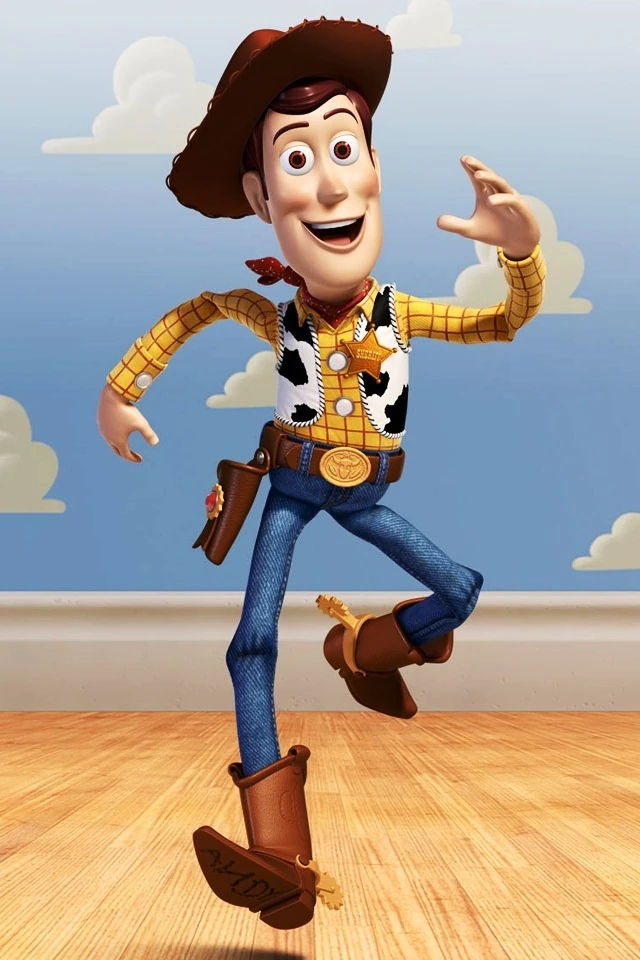Unpacking Woody Paige: A Look At The Iconic Sports Voice
When you hear the name "Woody," your mind might just instantly go to a very familiar place, you know, like, the brave, kind, and smart sheriff. He's that dependable leader from the Disney•Pixar Toy Story franchise, who's been a pal for as long as many can remember, really. He's the main protagonist of those beloved films, the one who's always making sure, you know, that no toy gets left behind. That's a pretty special kind of character, isn't it?
But today, we're actually going to talk about a slightly different kind of influential figure, a voice that has, in a way, shaped sports commentary for what feels like decades. This isn't about a toy sheriff, as a matter of fact, but about a real person who has left an indelible mark on the world of sports media.
We're setting our sights on Woody Paige, the well-known sports journalist and television personality. His unique style and sharp wit have made him a truly recognizable face and voice in sports discussions. So, we'll explore his journey, his distinct approach, and how he has, you know, remained a relevant figure in a constantly shifting media landscape.
Table of Contents
- Introduction
- Who is Woody Paige?
- The Signature Style of Woody Paige
- Impact on Sports Journalism
- Woody Paige and the Digital Age
- Frequently Asked Questions
- Conclusion
Who is Woody Paige?
Woody Paige, a name that, for many sports enthusiasts, evokes images of spirited debate and quick-witted commentary, is a veteran American sports journalist. He's been around for quite a while, actually, making his mark in print, on television, and even in the digital space. His career, you know, spans several decades, showing a remarkable ability to stay relevant in a fast-paced industry.
Born in Oakland, California, Paige spent a good portion of his formative years in Tennessee. He graduated from the University of Tennessee, where he, like, really started to hone his writing skills. Early on, he worked for newspapers in places like Memphis and Oklahoma City, building a solid foundation in journalism.
His path eventually led him to Denver, Colorado, where he became a prominent sports columnist for the Rocky Mountain News. This was a significant period, you know, for his career, allowing him to develop the distinct voice that would later become his trademark. He covered everything from local teams to major national events, always with a fresh, often humorous, perspective.
Later, he joined The Denver Post, becoming one of their most popular and widely read columnists. It was during this time that he, like, really cemented his reputation as a fearless and entertaining commentator. His columns were known for their sharp insights, their playful jabs, and, very often, their unpredictable nature. He certainly wasn't afraid to express a strong opinion, which, you know, is something readers often appreciate.
Beyond print, Woody Paige gained widespread national recognition through his appearances on ESPN, particularly on the show "Around the Horn." This platform, arguably, introduced him to a much broader audience. His segments there, you know, were always lively, often featuring his signature whiteboard where he'd jot down quirky statistics or bold predictions. It was a bit of a phenomenon, actually, seeing what he'd write next.
Personal Details & Bio Data
| Full Name | Woody Paige |
| Born | June 17, 1946 |
| Birthplace | Oakland, California, USA |
| Education | University of Tennessee |
| Profession | Sports Journalist, Columnist, Television Personality |
| Notable Works | The Denver Post, Rocky Mountain News, ESPN's Around the Horn |
| Known For | Unique commentary style, whiteboard antics, witty remarks |
The Signature Style of Woody Paige
What truly sets Woody Paige apart is, well, his utterly unique style. It's something you either, like, really get or you don't, but it's always memorable. His approach to sports commentary is a blend of sharp analysis, theatrical flair, and a generous helping of humor. He doesn't just report on sports; he performs it, in a way.
One of his most recognizable trademarks, arguably, is his use of the whiteboard on "Around the Horn." Each day, he'd scrawl out a new, often cryptic, phrase or statistic that would, you know, somehow relate to the day's sports topics. It was a visual gag, yes, but also a clever way to emphasize a point or add a bit of an unexpected twist to the conversation. Fans, you know, would often look forward to seeing what he'd come up with next.
His delivery is, too, quite distinctive. He often speaks in rapid-fire bursts, jumping from one idea to the next with a kind of frenetic energy. This creates a very dynamic and engaging presence, especially on television. He's got a knack for coining memorable phrases and for, like, delivering one-liners that cut through the noise. It's a style that, in some respects, keeps you on your toes.
Beyond the performance aspect, Paige's writing, both in his columns and his books, reflects this same personality. He has a way of taking complex sports narratives and breaking them down with clarity, yet always infusing them with his own brand of wit. His prose is, you know, often conversational, making readers feel like they're just having a chat with a knowledgeable friend who happens to be incredibly funny.
He’s also known for his playful rivalries, especially with fellow commentators. These back-and-forths, while seemingly combative, are often a source of entertainment for viewers. They add a human element to the debates, showing that even serious sports talk can have its lighthearted moments. It’s a bit like watching a friendly sparring match, actually, where everyone is in on the joke.
His willingness to, like, embrace new formats and technologies has also been a key part of his enduring appeal. He transitioned from print to television seamlessly and has, you know, maintained a presence in the digital sphere. This adaptability, arguably, shows his commitment to reaching audiences wherever they are, and that's pretty smart.
Impact on Sports Journalism
Woody Paige's influence on sports journalism is, you know, pretty significant, especially in how he helped shape the landscape of televised sports debate. Before shows like "Around the Horn," sports commentary on television tended to be, like, a bit more formal, more about straight analysis. Paige, with his unique style, helped usher in an era where personality and engaging banter became just as important.
He demonstrated that sports talk could be entertaining without sacrificing insight. His ability to blend serious points with humor and a bit of theatricality made discussions more accessible and, very often, more compelling for a wider audience. This approach, arguably, encouraged other commentators to, like, loosen up a bit and develop their own distinct on-screen personas.
His long tenure in both print and television also speaks volumes about his consistency and relevance. For decades, he’s been a voice that people turn to for their sports fix, whether they agree with him or not. This kind of longevity, you know, is a real testament to his enduring appeal and his ability to connect with fans.
Paige also helped popularize the idea of the "hot take" in a way, though perhaps in a more nuanced and less aggressive form than what we often see today. He wasn't afraid to take a controversial stance, but he usually backed it up with his own brand of logic and, you know, often a good laugh. This willingness to stir the pot, so to speak, made for very engaging television and, actually, encouraged spirited discussion among viewers.
His work has also inspired a new generation of sports journalists and commentators. Many aspiring media professionals look to his career as an example of how to build a lasting presence in a competitive field. He showed that authenticity and a unique voice can, you know, really make a difference. It’s about more than just knowing the stats; it’s about how you tell the story.
The impact of his whiteboard, for instance, is a small but telling example of his broader influence. It became, you know, an iconic part of "Around the Horn," something that viewers anticipated daily. This kind of creative element helped differentiate the show and, arguably, contributed to its lasting popularity. It’s little touches like that, you know, that really stick with people.
Woody Paige and the Digital Age
In an era where media consumption has, like, shifted dramatically, Woody Paige has shown a remarkable ability to adapt. While he made his name in traditional print and then on cable television, he’s also maintained a presence in the ever-expanding digital landscape. This adaptability, you know, is pretty crucial for anyone looking to stay relevant in today's media world.
He has, for instance, embraced social media platforms, using them to share his thoughts, interact with fans, and promote his work. This direct connection with his audience is, arguably, something that many older journalists sometimes struggle with, but Paige seems to have navigated it with ease. He understands that, you know, engaging directly is a big part of how people consume news and commentary now.
His continued appearances on various sports programs, both on television and online, show that his commentary remains in demand. Even as new voices emerge, there's still a very real appetite for the seasoned perspective and distinctive humor that he brings. It’s a bit like, you know, having a trusted elder statesman of sports always there to offer a unique take.
The digital age has also allowed his classic moments and whiteboard antics to live on through clips and memes, reaching new audiences who might not have seen them live. This kind of viral longevity, you know, helps keep his name and his style in the public consciousness, ensuring that his influence continues to spread. It's a pretty cool way for content to endure, actually.
His columns, too, are now widely available online, allowing readers from anywhere to access his insights. This broader reach means that his impact isn't just limited to those who could buy a local newspaper or tune into a specific cable channel. It’s a global stage now, and he’s, like, definitely on it. This accessibility, in some respects, has only amplified his legacy.
So, even as the ways we consume sports news and commentary keep changing, Woody Paige has, you know, found ways to remain a familiar and respected voice. His journey

Woody | Wiki Toy Story | FANDOM powered by Wikia

Woody from Toy Story Desktop Wallpaper

Woody - Pixar Photo (31188329) - Fanpop